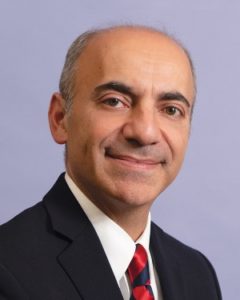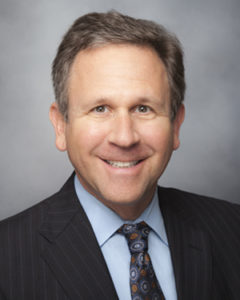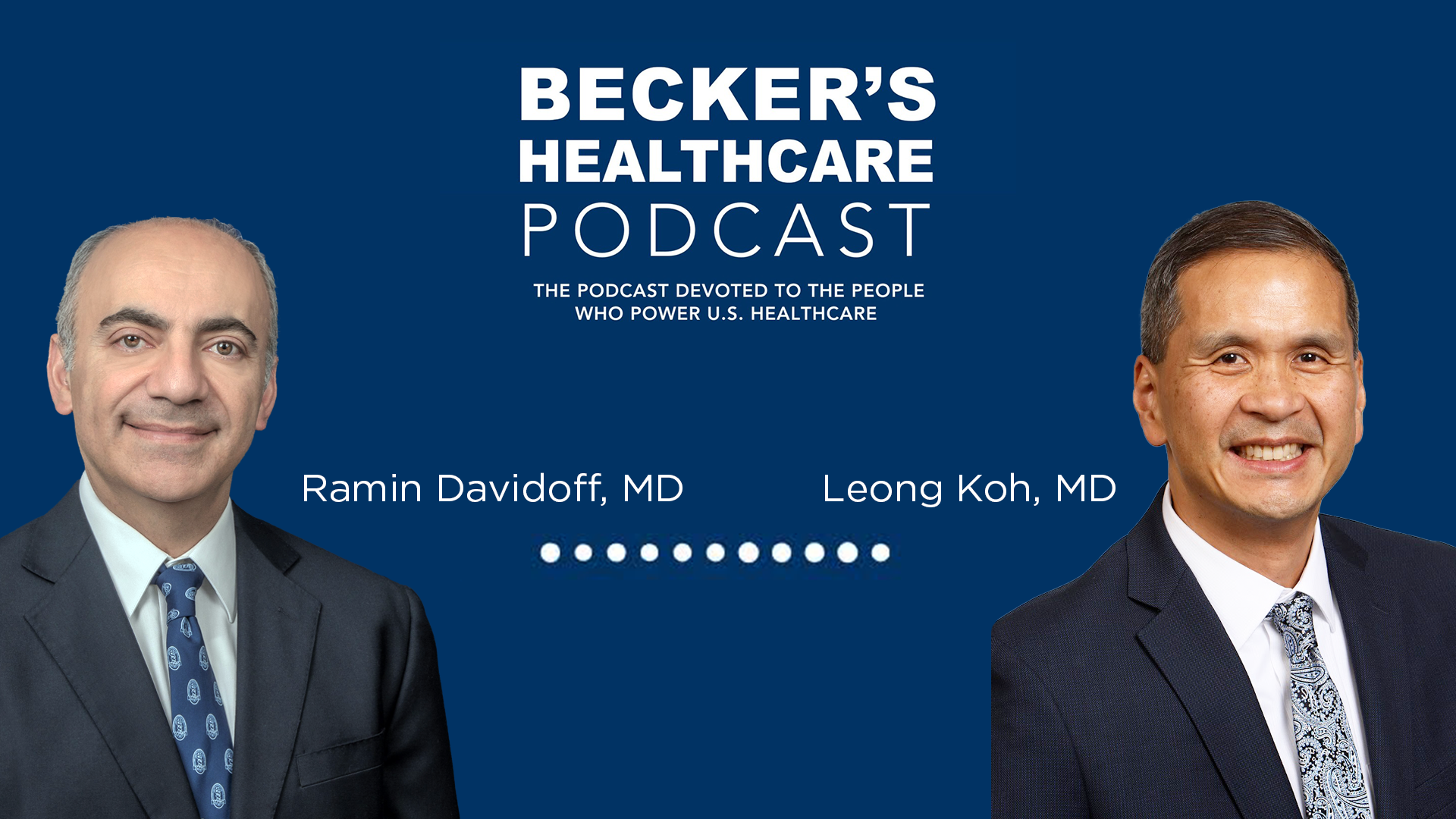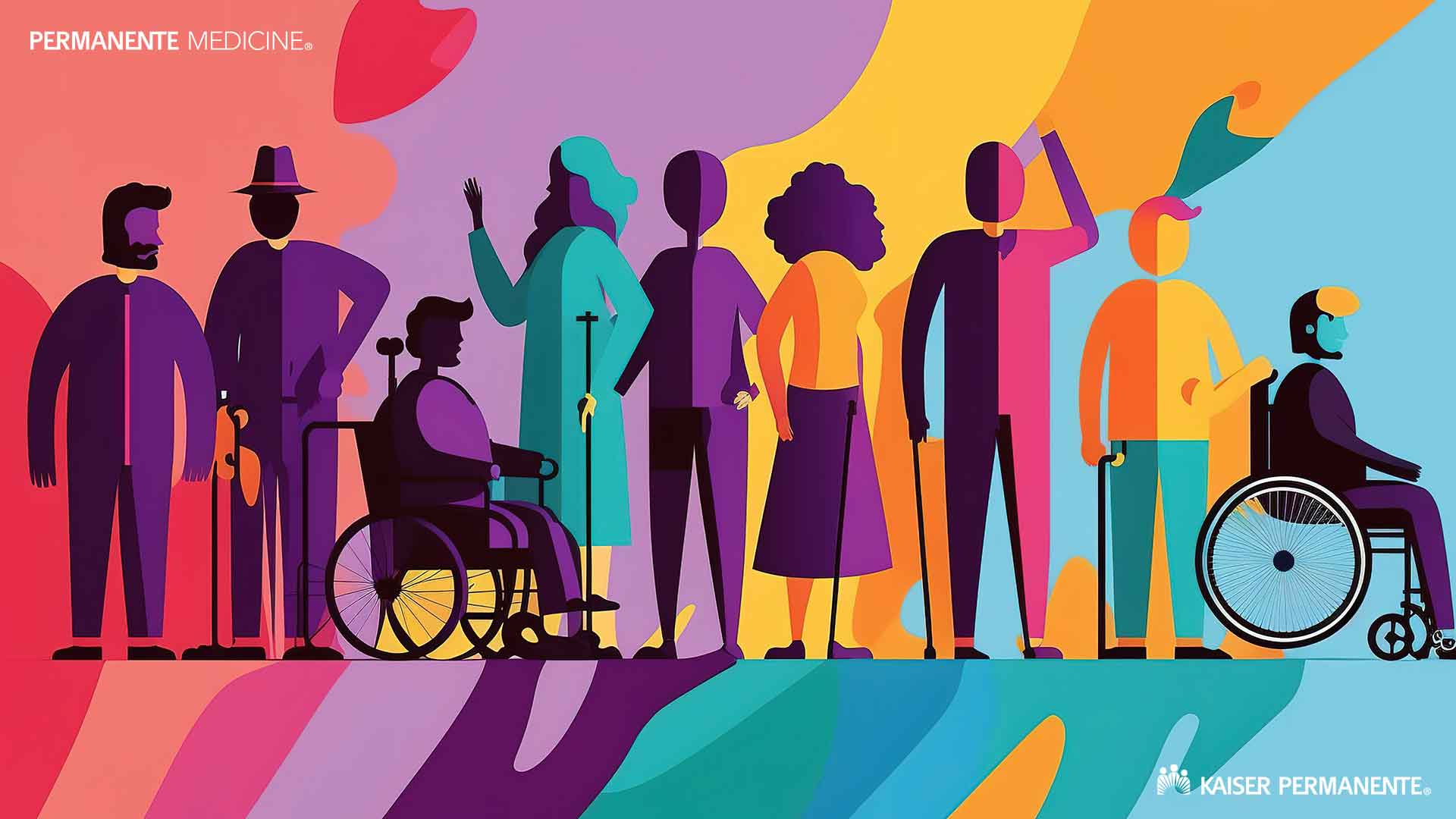Physician leaders Ramin Davidoff, MD, and Leong Koh, MD on the power of innovation, workforce education, and physician leadership in a post-pandemic world.
At HIMSS21, Permanente leaders say COVID-19 is driving profound changes to health care
Permanente Medical Group leaders who participated in the recent HIMSS (Healthcare Information and Management Systems Society) conference shared how the COVID-19 pandemic is driving a digital transformation of health care delivery and spurring changes across the U.S. health care system that will better serve patients in the long term.

“All venues of care changed as a result of the pandemic, probably forever,” Ramin Davidoff, MD, co-CEO of The Permanente Federation, said during the “Key Considerations for Resilient Models of Care” panel. He said Kaiser Permanente’s technology investments over the past couple of decades demonstrated their value during the pandemic, including comprehensive, large-scale electronic health records, telehealth, and a self-service questionnaire that provides quick and safe care for patients who prefer to interact online.
“In 2019 Kaiser Permanente in Southern California conducted around 30,000 e-visits,” said Dr. Davidoff, who also serves as executive medical director and chair of the board of Southern California Permanente Medical Group, and chair of the board and CEO of The Southeast Permanente Medical Group and Hawaii Permanente Medical Group. “That number grew to 2 million in 2020 and we’re already above 3 million e-visits year to date in 2021. That increase gives you a flavor of the rapid transformation and [how quickly we pivoted] towards these types of modalities and venues of care.”
He added that the pandemic also drove increased awareness of the need to create a more sustainable post-pandemic health care system, on a large scale.
“We really should be looking at redesigning our health care system in a radical way,” he said. “One big structural change underway is the shift to value-based care, and another big structural shift is the use of the virtual technologies to center treatments around the patient — making sure health care is delivered in a convenient manner, in the right place, at the right time, for our patients.”
Health care innovation

During a HIMSSTV segment, Richard S. Isaacs, MD, FACS, co-CEO of The Permanente Federation, shared an example of patient-centered care — Kaiser Permanente’s partnership with Mayo Clinic this year to bring acute care into patients’ homes.
In a subsequent HIMSS21 panel, “A ‘Black Swan Event’ Gave Healthcare Transformation Wings: What’s Next?,” Dr. Isaacs described how the acute-care-at-home program uses predictive analytics to identify in real time who needs interventions and who is on track for recovery.
“We’re on a trajectory in this country where health care is just unachievable because costs are so high, so we’re looking for alternative venues for care,” he said, noting that 89% of Kaiser Permanente’s total joint replacement patients now recover at home without an overnight hospital stay.

On the same panel, Edward R. Lee, MD, chief information officer for The Permanente Federation and associate executive director of The Permanente Medical Group, said he believes augmented intelligence will play a huge role over the next 5 years. He gave the example of computer vision technology, which can identify a CT scan that indicates a life-threatening event and move that scan to the top of a radiologist’s reading queue to expedite care for the patient.
“A lot of people think ‘AI’ is artificial intelligence,” Dr. Lee said. “We really believe it’s more augmented intelligence, because it brings physician expertise together with computer technology.” The combination, he added, “is probably better than what a physician can do individually [and] what a computer program can do independently, to come up with an even better outcome.”
The HIMSS conference this year, “Be the change,” was a hybrid of online sessions and in-person meetings in Las Vegas.
Note: HIMSS21 registrants can view the panel with Dr. Davidoff, “Key Considerations for Resilient Models of Care,” which is part of the HIMSS21 “Unexpected Insights & Outcomes” session.
Registrants can also view the HIMSS TV interview with Dr. Isaacs by tuning into “Automating Supply and Workflow Processes.”


